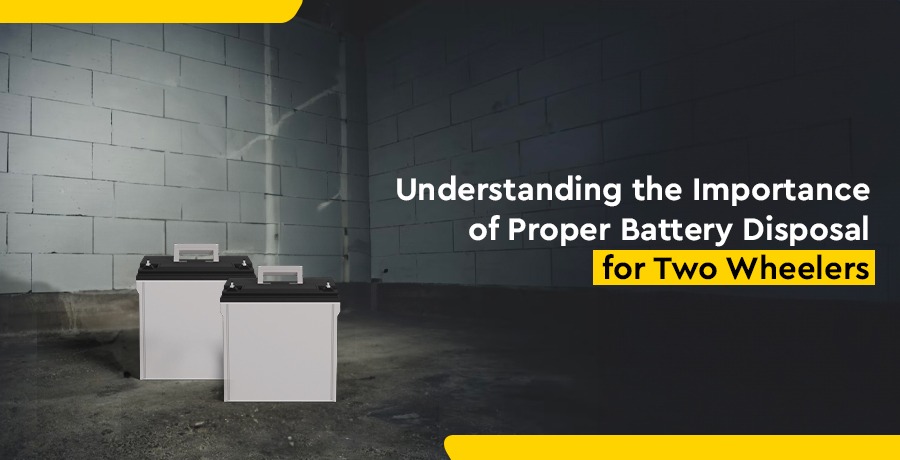Introduction
The world is becoming increasingly conscious of environmental issues, and one aspect that often goes unnoticed but has a significant impact is the disposal of batteries. This article delves into the importance of proper battery disposal for two-wheelers, highlighting the environmental and safety concerns associated with battery disposal and providing guidance on responsible disposal methods.
The Environmental Impact
Batteries used in two-wheelers, often lead-acid batteries, contain hazardous materials such as lead and sulfuric acid. When improperly disposed of, these batteries can have severe consequences for the environment. When left in landfills, lead from batteries can leach into the soil and water, causing contamination and harm to wildlife and ecosystems.
- Soil Pollution: The lead in batteries can infiltrate the soil, affecting its fertility and harming plant life. This, in turn, disrupts the entire ecosystem as it impacts the food chain and the animals dependent on these plants.
- Water Contamination: The sulfuric acid in batteries poses a threat to water bodies. When batteries break down in landfills or are disposed of inappropriately, this acid can seep into groundwater, rivers, and lakes, endangering aquatic life and compromising the quality of drinking water.
- Air Pollution: Improper disposal methods like incineration release toxic fumes into the atmosphere, contributing to air pollution and harming human health.
Safety Concerns
Aside from environmental concerns, improper battery disposal can also pose safety risks to individuals and communities. Two-wheeler batteries contain corrosive materials and can explode or leak harmful chemicals when mishandled.
- Acid Leaks: When batteries are not disposed of correctly, the sulfuric acid inside can leak and cause skin burns or eye injuries to those who come into contact with it.
- Fire Hazards: Batteries can ignite fires when exposed to heat or sparks, potentially leading to catastrophic consequences, especially in densely populated areas.
Responsible Battery Disposal
To mitigate the environmental and safety risks associated with battery disposal, here are some responsible disposal methods for two-wheeler batteries:
- Recycling: The most eco-friendly and responsible option is to recycle your old batteries. Battery recycling centres can safely extract valuable materials and dispose of hazardous components properly.
- Authorised Collection Centers: Many regions have authorised collection centres where you can drop off your old batteries. These centres ensure that the batteries are handled and disposed of safely.
- Manufacturer Take-Back Programs: Some battery manufacturers offer take-back programs. They take back used batteries and recycle them in an environmentally friendly manner. Check with your battery manufacturer for such programs.
- Check Local Regulations: Familiarise yourself with local regulations regarding battery disposal. Some areas have specific guidelines for handling and disposing of hazardous materials like batteries.
Conclusion
Proper battery disposal for two-wheelers is not just a matter of environmental responsibility; it's also about safeguarding human health and preserving our natural resources. Irresponsible battery disposal can have far-reaching consequences, from soil and water contamination to air pollution and safety hazards.
To contribute to a cleaner and safer environment, always choose responsible disposal methods like recycling, authorised collection centres, or manufacturer take-back programs. By doing so, you can ensure that your two-wheeler's battery doesn't become a threat to the planet or your community.






